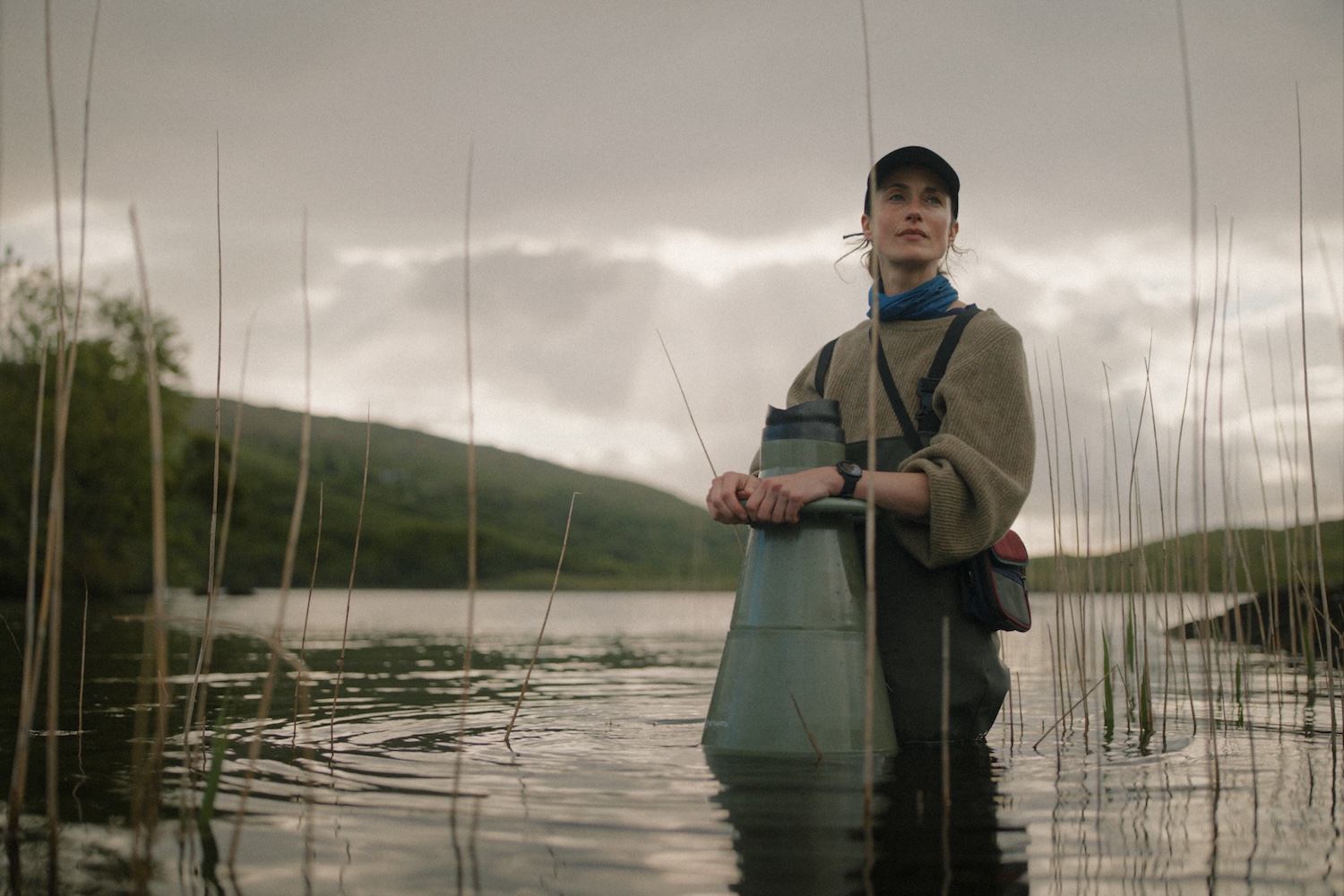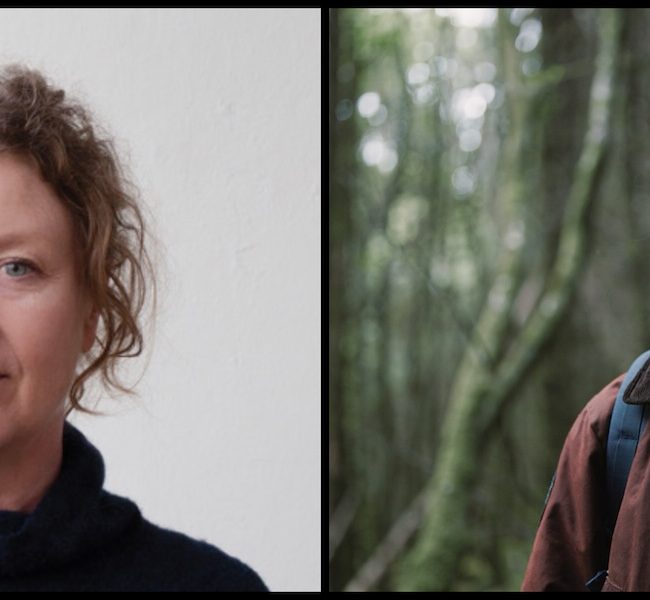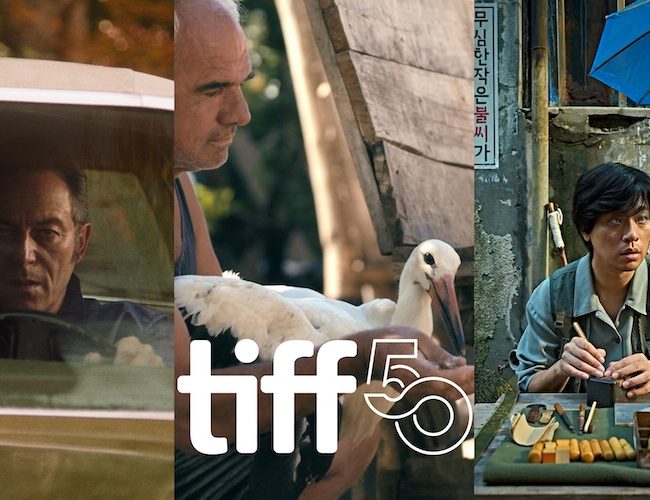WHITETAIL

(The Toronto International Film Festival (or TIFF) marks its 50th anniversary this year. TIFF 50 runs September 4-14, with the fest’s usual vast array of movies playing in venues around the downtown entertainment district. Chris Reed has boots on the ground and lots to read about like this Whitetail movie review. Seen it? Join the conversation with HtN on our Letterboxd Page.)
In Whitetail, an adult survivor of childhood trauma must learn to finally confront the demons of her past. As played by Natasha O’Keeffe (the BBC’s Peaky Blinders series), Jen is all raw nerves, even as she takes solace in the beautiful woods of Ireland’s southwestern Gleninchaquin Valley, where she works as a park ranger. This is the same forest, however, where she was once responsible for a family tragedy. It’s hard to heal old wounds if you stay in place.
Still, the flora and fauna nourish her soul, though she is not the friendliest of sorts to the area’s humans. When her teenage boyfriend, Oscar (Aaron McCusker, Bohemian Rhapsody) returns home after his mother’s death, Jen is anything but happy. He was with her on that fateful day years ago, and his presence serves only to remind her of what was lost. But he, too, needs to find his place in the world, and this is where he intends to do it, Jen’s resistance notwithstanding.
Jen’s own mother—never able to forgive her—has also recently passed away; now it’s just Jen and dad (Andrew Bennett, The Quiet Girl), with the latter worried about his own mortality and the many ways (to his mind) he has failed his daughter. The cinematic stage is set for a narrative about forgiveness and recovery, but writer/director Nanouk Leopold (Cobain) is in no rush. Instead, she takes her time allowing the characters to express their pain and, perhaps, finally move beyond it.
The cinematography, by Frank van den Eeden (Small Things Like These), showcases County Kerry’s natural delights, the camera lingering on trees, leaves, dirt, deer (from which the title comes), and beetles. These last function as a symbol of the land’s refusal to release Jen from the grasp of long-held memories, though they also bring comfort. The more Jen suffers, the more the earth draws her in.
O’Keeffe’s performance engages us in Jen’s drama, and the ensemble ably supports her. Scenes unfold slowly, with dialogue often at a minimum. Careful compositions frame actors against somber (if often gorgeous) backdrops, highlighting the subtle play of emotions across their faces. It’s a masterclass in understatement, made more powerful after an opening sequence filled with the very opposite, a hysteria that Leopold chooses to hold on past our comfort level.
Whitetail ends with catharsis, but it doesn’t arrive via the expected route. The script takes several surprising turns, keeping us on our toes. The final images of the film remain muted in their palette—history never goes away, though it can recede from our mind—even if still immersed in the wonders of nature. It’s a fitting resolution to this quiet, restrained gem of a movie.
– Christopher Llewellyn Reed (@ChrisReedFilm)
2025 Toronto International Film Festival; Nanouk Leopold; Whitetail movie review











